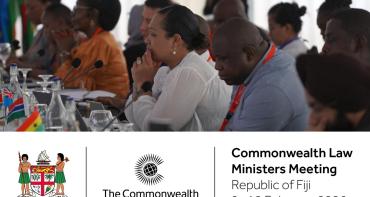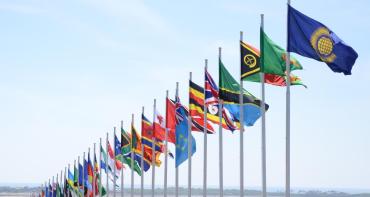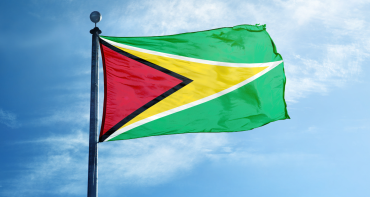Deputy Secretary-General addresses global consultation in South Africa
The Commonwealth can make a distinct contribution towards ensuring that the issue of governance is a core part of a new set of development goals being negotiated internationally, the Commonwealth Deputy Secretary-General has said.
Mmasekgoa Masire-Mwamba was speaking at the final United Nations Development Programme (UNDP) and Office of the UN High Commissioner for Human Rights (OHCHR) consultation on the role of governance in the global anti-poverty framework that will succeed the Millennium Development Goals after the 2015 deadline.
The two-day thematic consultation ended Friday at the Pan-African Parliament in Johannesburg, South Africa, and included contributions from civil society, policy-makers and governance practitioners from around the world.
“Good governance practices and accountability mechanisms need to be underpinned by continuity and country ownership to ensure sustainability. The Commonwealth has a long history in advancing global thinking on development. Poverty reduction, sustainable growth and democracy form central pillars of our work,” the Deputy Secretary-General told delegates.
The guiding vision of the Commonwealth emphasises the direct link between good governance and economic progress. It underscores the importance of democratic freedoms and a participatory approach to development processes that give a voice to the poor and vulnerable, she said.
Ms Masire-Mwamba stressed that the Commonwealth’s core strengths – including its shared values, its diverse constituents, and its convening power – mean it is well-placed to promote the positioning of governance in the post-2015 process.
“The Commonwealth can play a unique role in facilitating inclusive dialogue and consensus-building around issues of concern to member states. Using ready-made platforms based on trusted relationships, we can help to connect the technical and political aspects of the post-2015 debate.
“The diversity of our membership means that it can valuably serve as an important bridge between some of the world’s poorest and richest countries, and between some of the smallest and most populous.
“Of particular resonance has been the Commonwealth’s high profile role, advocating inclusivity in international institutions. No meaningful development can occur unless those without a voice can be heard in key global institutions.”
Addressing the importance of inclusivity for future generations, Ms Masire-Mwamba said that youth unemployment had brought the lack of good governance and dearth of robust public institutions sharply into focus.
“The Commonwealth is supporting the creation of frameworks and networks to ensure that our young people are empowered to engage meaningfully in all social, political and economic processes, of which governance is a key aspect.”
The UNDP and OHCHR consultation was designed to provide meaningful global participation from a wide range of interest groups and aims to build a shared vision and ownership on key issues with suggestions on how governance and accountability at all levels can be integrated into the post-2015 agenda.
It aimed to reach out to constituencies that do not generally access intergovernmental processes, yet are most affected by the global community’s achievements and failures in addressing poverty.
Recommendations from the global consultation will be fed into the UN Secretary-General’s High-Level Panel on post-2015.



